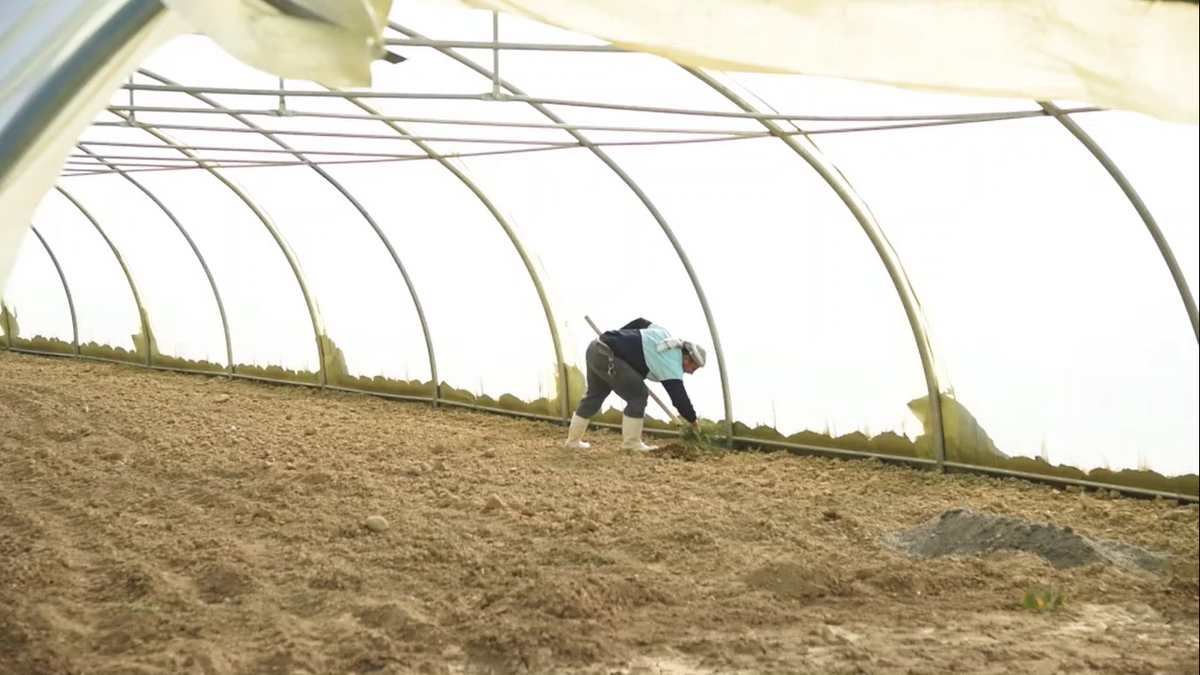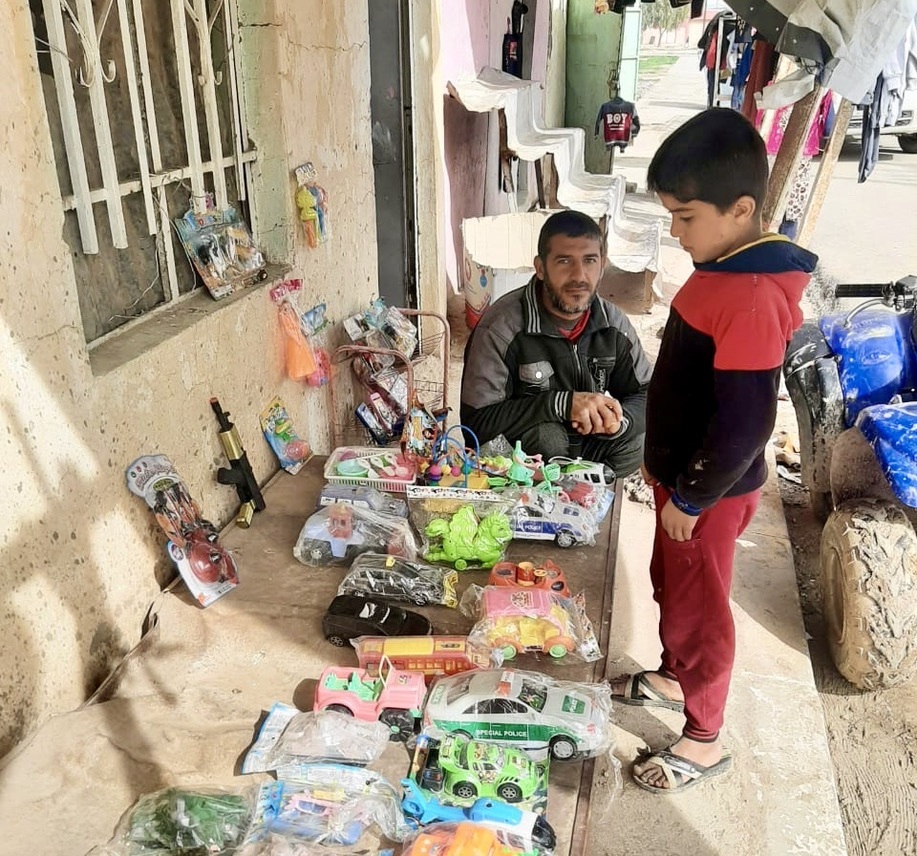Even before the outbreak of the coronavirus pandemic, Iraq was struggling with the consequences of many years of armed conflict. Millions of Iraqis have had to flee their homes because of the fighting, and hundreds of thousands are still internally displaced across Iraq. Those who have returned to their homes often do not have access to basic services and have difficulty finding a source of livelihood. The coronavirus pandemic has further exacerbated the crisis, affecting many Iraqis who have had to close their businesses or lost their jobs.
Another tragedy struck Iraq in late April, when 82 people died in a fire at a Baghdad hospital in the intensive care unit treating coronavirus patients.The fire broke out apparently due to improper storage of oxygen containers, one of which exploded.
coronavirus patients.The fire broke out apparently due to improper storage of oxygen containers, one of which exploded.
The country of 39 million people is currently facing another wave of Covid-19 pandemic, with an average of 8,000 new cases per day since mid-April, which has since lowered to around 6,500 new cases daily. Since the beginning of the pandemic, 15,536 people have died of Covid-19 in Iraq.
Iraqis are tired of the consequences of the pandemic, but the country director of Caritas Czech Republic in Iraq believes that Iraqis love life and will rise above this challenge. Muhammed Hammady tells us more about the current situation in the country as well as how Caritas’ work has changed in the past year due to the pandemic.
What has changed the most in your work since the beginning of the pandemic?
First of all, definitely that we started working remotely. It has been a big change for us, because in Iraq we are providing direct humanitarian aid to people in need. Despite the access challenges resulted from security reasons, we were previously able to be on the front lines to help the most vulnerable families affected by the war. Covid-19 imposed completely new challenges we never witness before. Complete lockdowns and restrictions on movement in the field have often prevented us from accessing vulnerable people and providing timely assistance. We therefore had to learn how we can continue to support vulnerable families, even though we work mainly from our homes.
In previous interviews, the country directors of Caritas Czech Republic agreed that one of the biggest obstacles the pandemic has brought to their work, was that they could no longer meet with partners and donors. Was the situation similar in Iraq?
Yes, for sure, due to the pandemic, we had to adapt distance coordination with peers in other NGOs and Donor representatives. Networking has always been a pleasant and beneficial task for us because we could meet nice people full of energy at NGOs, civil society organizations and UN agencies, share expertise, know-how and our best practices. But with Covid-19, and restrictions of movement, we had to adapt and use available and newly introduced online means of communication to maintain the coordination up to the required level.
How else did the pandemic affect the work on the Caritas Czech Republic's office in Iraq?
Planning, which is an essential segment of our work, is challenging. Planning new interventions and completing ongoing ones is really difficult. Especially because it is not clear when we will be able to work normally and secure proper and continuous access to the field. That hopefully would be associated with the end of this pandemic.
In Iraq, Caritas Czech Republic supports the most vulnerable people who are still struggling with the consequences of the war and economic problems. How has the coronavirus pandemic affected these people?
The pandemic has significantly affected the health, livelihoods, social life and well-being across Iraqi population. We have to remember that hundreds of thousands of Iraqis are still internally displaced, or newly returned to their areas of origin where they may be living in substandard conditions and lack access to basic services.
How did Iraq cope with the outbreak of the pandemic?
The government did so far a good job in encountering the pandemic. It started in early 2020 when the federal government of Iraq and the Kurdistan Regional Government imposed the first partial lockdown and then a full lockdown in spring. This helped contain the spread of the virus while other countries were reporting high numbers of new infections. However, these measures were not sustainable in the long run because the government could not afford to extend the lockdowns without a clear deadline. So, the government was obliged to lift the restrictions gradually with tremendous efforts to raise public awareness of the risk of Covid-19 and how to prevent the spread and how to protect oneself and others. For public facilities, restaurants, shops and schools, the Covid-19 task force of the Iraq government announced specific restrictions based on the evolving of reported numbers of cases.
Thus, we had period when measures were more relaxed and public facilities were opened, and other times when, with the peak of the second wave, the government required stricter measures.
Has Caritas Czech Republic also joined the fight against the pandemic in Iraq?
Caritas Czech Republic is one of many NGOs and CSOs that have joined the fight against the pandemic in Iraq and together are helping to alleviate the impact of the pandemic on the livelihoods and living conditions of vulnerable families in Iraq. Since the beginning of the pandemic, we have launched 6 projects in 5 different governorates, which focus on improving access to livelihoods and income generation for Iraq's most vulnerable families. We are also improving living conditions of vulnerable families living in informal settlements and substandard conditions to better cope with weather conditions and be able to self-isolate themselves when needed.
How does life in Iraq look like now?
Locals are tired and exhausted from the economic, social and emotional effects of the pandemic. Many families have partially or completely lost their livelihoods. We can say that there is no one in Iraq who was not affected by the pandemic in some way. Whether by the virus itself or the socio-economic impacts.
The lack of governmental subsidies that could have helped people to cope with the economic consequences forced the local population to protest against Covid-19 restrictions and demand the opening of markets and lifting of the measures.
Has vaccination against Covid-19 already begun in Iraq?
Iraq received the first batch of vaccines in March and launched a nationwide vaccination campaign where locals can submit request and be enrolled on the waiting list. The main challenge for the government is securing enough quantities and uniterrupted supply chain to ensure efficiency of the campaign. WHO and health NGOs assist the Iraqi government by providing mentoring and technical expertise.
What surprised you the most about the pandemic in Iraq?
Despite the unreliable news on social media and other platforms that spread fake news about the vaccine against Covid-19, I was impressed by high level of awareness among the local population and positive perspective about the upcoming vaccination campaign. And that Iraqis look forward to being vaccinated as long as it will help to overcome this dark episode of our lives. I have a concrete faith that Iraqis love life and will rise above this challenge.










